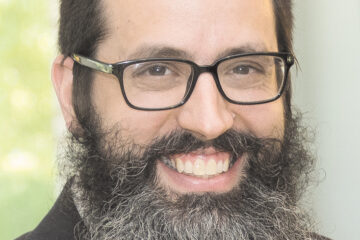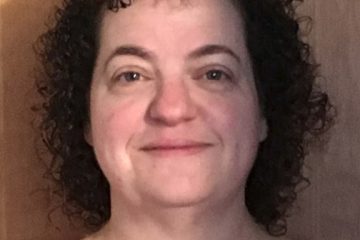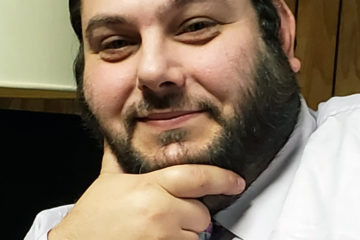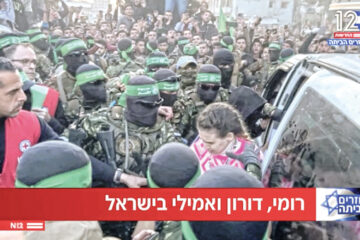Torah through a mystical lens

By Michele Alperin
Special To The Dayton Jewish Observer
The Zohar, Dr. Daniel Matt says, dares to be imaginative with the Torah, empowering individuals to interpret the story in totally new and individual ways.
Most powerful are its views of God. “It is the divine energy that is animating all existence,” Matt says. “If you contact that energy, that’s what it means to be religious: it becomes an immediate experience and not just a belief system.”
Matt, who has translated into English much of The Zohar — the writings upon which the Jewish mystical tradition of Kabalah is based — will be the guest speaker for this year’s Ryterband Symposium, on Sept. 14. The symposium is a collaboration involving The University of Dayton, United Theological Seminary, and Wright State University.
Matt says he was inspired by his father, Reconstructionist Rabbinical College Prof. Rabbi Hershel Matt. “Because I felt such a strong spiritual drive in him, I looked for that element within Jewish teaching.”
But Matt was not suspicious of mysticism the way his father was, and as a college student he studied Chasidic texts with Rabbi Arthur Green in a Hillel study group at Brandeis University.
Intrigued by short passages from a mystical Torah commentary, The Zohar, interspersed in these texts, Matt studied beginning and advanced Zohar with disciples of the scholar of mysticism, Gershom Scholem, during his junior year abroad at Hebrew University in Jerusalem.
After completing a major in Jewish studies, Matt began work on a doctorate. His dissertation was a translation of a 14th-century Torah commentary by R. David ben Judah he-Hasid, written 30 years after The Zohar.
“I wanted to study The Zohar, and it gave me a chance to see how a contemporary Kabalist was understanding this amazing book,” he says.
Matt describes The Zohar as “an imaginative midrash. It penetrates the literal meaning of the text and searches for its deeper spiritual sense.”
It alludes, for example, to the possibility that metaphorically, Adam threw God out of the Garden of Eden.
“In a sense we are still in the Garden but don’t realize it,” Matt says. “We don’t appreciate the beauty of life because we have lost touch with the Divine and excluded the Divine from our lives.”
With the completion of his dissertation, Matt thought he was done with The Zohar and eventually set to work on a book about the parallels between Kabalah and cosmology, God & the Big Bang.
“It was a way to leave the medieval realm and try to explore modern thinking,” he says.
But after 20 years as a professor at the Graduate Theological Union in Berkeley, Calif. as well as teaching stints at Stanford University and Hebrew University, The Zohar returned him to his former life, one might say, with a big bang.
In 1995 Margot Pritzker, the wife of Hyatt CEO Tom Pritzker, was studying The Zohar with Rabbi Yehiel Poupko. Finding the Soncino translation inadequate, she decided to commission a new translation and commentary.
Having read Matt’s The Essential Kabbalah, she asked Green to feel him out about the project.
“I was fascinated and excited but hesitant,” Matt recalls. After thinking about the possibility for some time, he decided on a one-month trial but was so exhausted at the month’s end that he told Green, “Thank you so much. I’ve tried it, and I just can’t do it.”
But Green had another trick up his sleeve; he urged Matt to give Margot Pritzker his answer in person. When they met, Matt tried to talk her out of the project, but she asked him, “If you did it, how long would it take?”
When he said, “12 to 15 years,” she replied, “You’re not scaring me,” and somehow that worked. “Something clicked in me, and I decided to do it,” Matt recalls.
After taking three years of sabbaticals to pursue the project, he resigned from his academic position. Matt has nearly finished Volume Seven, leaving two more volumes on the Torah and another three to be completed by younger colleagues, on other parts of the Bible.
The Zohar, Matt says, has changed the way we look at God. Kabalah calls God Ein Sof (“without end” or “infinity”). “God is beyond any particular description,” Matt says. “All of the normal names we have for God are inaccurate.”
Kabalah also posits a female half of God, the Shechinah (or divine presence), suggesting that God is equally male and female. And Kabalah views God as in need of human beings.
“The male and female halves of God can unite only if stimulated by human action,” Matt says. “Every mitzvah (commandment) in the Torah becomes a stimulus for divine romance; mitzvot turn into aphrodisiacs. Human beings have to act ethically and righteously in order to actualize God, to realize the divine potential in the world.”
The Zohar was written in Aramaic largely by Moses de Leon in 13th-century Spain, who credited its authorship to second-century Rabbi Shimon ben Yochai.
“It’s a bizarre Aramaic, written by someone who didn’t speak Aramaic, and who only knew it from the Targum (Aramaic translation of the Bible) and the Talmud,” Matt says.
In his work, Matt uses both printed versions of the Zohar and 14th- and 15th-century manuscripts. He also draws on three or four translations and commentaries in English, Hebrew, and French as he seeks to reconstruct the original Aramaic text.
“It’s creative and holy and intellectual and challenging,” he says of his work, adding that it allows him to express his own poetic spirit as well as to draw on the scholarly tools he has accumulated over his career.
Dr. Daniel Matt is the guest speaker for the 33rd Annual Ryterband Symposium, Wednesday, Sept. 14 at Wright State University’s Student Union, Room 163. At 3:30 p.m., he’ll present the lecture To Eff the Ineffable: Translating The Zohar. At 7:30 p.m. he’ll present How The Zohar Re-imagines God. Both lectures are free and open to the public. For more information, contact Dr. Mark Verman at 775-2461.





